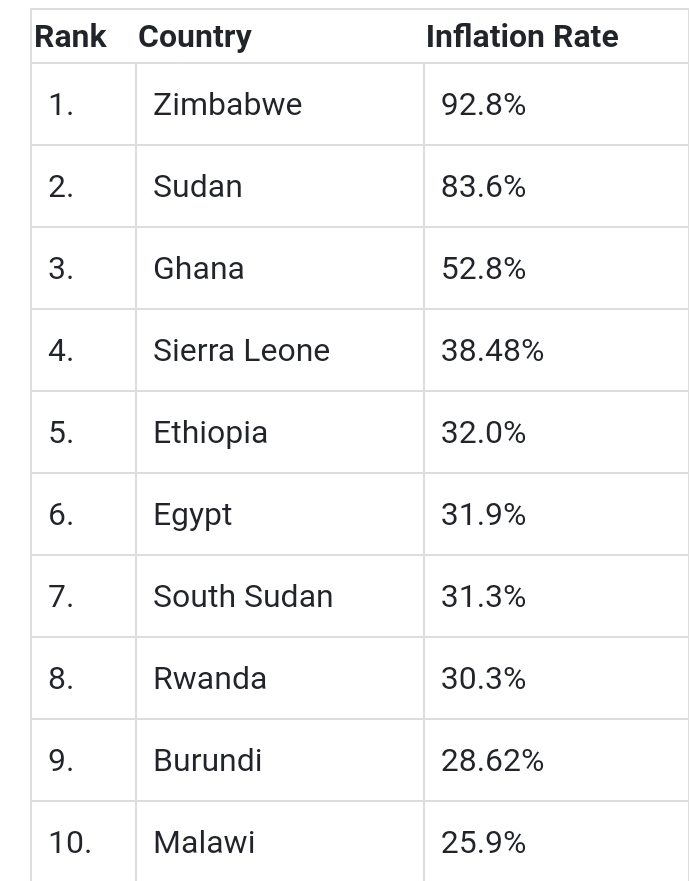Inflation has been a major problem for countries around the world for the past year, especially considering economic complications that have cut across numerous borders and even continents.
Rising prices are a symptom of high inflation, and they can be caused by an increase in the money supply or a decrease in purchasing power. When the money supply increases, it causes prices to rise. This can be due to an increase in government spending or an increase in the availability of credit. When the purchasing power of a currency decreases, it means that it can buy fewer goods and services, causing prices to rise.
High inflation can have a negative effect on economic growth and development. When prices rise, people may be less willing to make investments, as they are unable to predict the future value of their money. This may lead to a decrease in economic activity, as businesses may be less willing to expand and hire new employees. In addition, when prices rise, people may be less likely to save, as their money is losing value. This can lead to a decrease in capital investment, which can further slow economic growth.
High inflation can also lead to a decrease in the purchasing power of a currency. As prices rise, people may be unable to afford basic items, such as food or housing. This can lead to an increase in poverty, as people may be unable to purchase the items they need to survive.
There are several measures that governments can take to reduce inflation rates. These include reducing the money supply, increasing taxes, and cutting government spending. In addition, governments can also implement policies to increase competition in the marketplace and promote price stability.
High inflation rates can have significant consequences for the economy, as they can lead to an increase in poverty and a decrease in economic activity. It is important for governments to take steps to reduce inflation and promote economic growth and development.
With that in mind, there are a number of African countries that are currently a victim of some of the issues mentioned above. As a result, said African nations are dealing with abnormally high levels of inflation.
Below are 10 of these countries and their inflation rates. This list is courtesy of Trading Economics, , a data platform that provides its users with accurate information for 196 countries including historical data and forecasts for more than 20 million economic indicators, exchange rates, stock market indexes, government bond yields, and commodity prices.
Rank Country Inflation Rate
1. Zimbabwe 92.8%
2. Sudan 83.6%
3. Ghana 52.8%
4. Sierra Leone 38.48%
5. Ethiopia 32.0%
6. Egypt 31.9%
7. South Sudan 31.3%
8. Rwanda 30.3%
9. Burundi 28.62%
10. Malawi 25.9%

